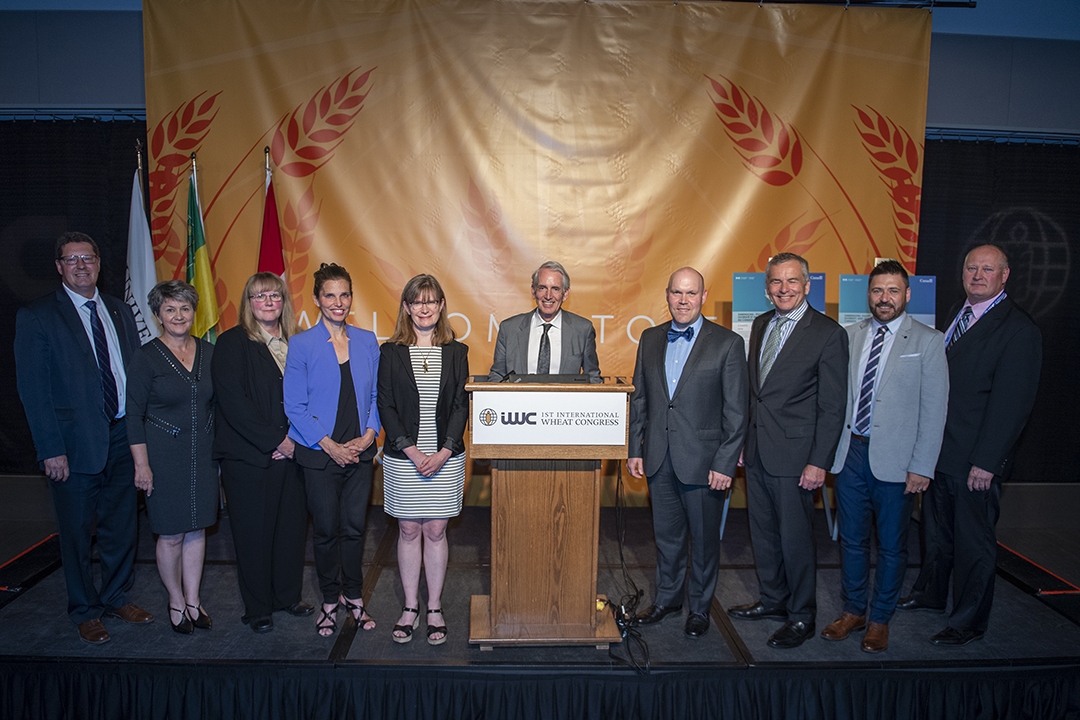
WCVM researchers receive $5.6-million for advanced diagnostics research
The future of diagnostic testing for livestock disease could fit into the palm of your hand.
A multidisciplinary team led by Dr. Cheryl Waldner, professor of large animal clinical sciences at the Western College of Veterinary Medicine (WCVM), and Dr. Simon Otto, an assistant professor in the University of Alberta School of Public Health and a WCVM alumnus, will study diagnostic testing for antimicrobial resistance in livestock management — a growing challenge to human and animal health around the world.
This team has secured more than $5.6 million in funding for a large, multi-year project that could radically change diagnostic testing for livestock producers and greatly improve the use of antimicrobials (antibiotics) to treat bacterial infections in cattle, swine, poultry and other food animals.
“The idea for this project comes from an increasing need to ensure the safe use of antimicrobials as the world faces the growing global threat of antimicrobial resistance,” says Waldner. “Disease-causing bacteria in animals are increasingly able to resist the antibiotics used to treat them, and the agriculture industry is being challenged to improve antibiotic stewardship in livestock production.”
This funding is included in the announcement of a $24.2-million investment over four years by Genome Canada and its partners in three University of Saskatchewan (USask)-led research projects aimed at ensuring Canada remains at the cutting edge of these agricultural markets.
“The agricultural sector is critical to Canada’s economic growth and to improving food security, both at home and abroad,” said USask Vice-President Research Karen Chad. “Working with our many academic, government and industry partners, this leading-edge genomics research in our rapidly growing biosciences cluster will help crop and livestock producers address key challenges and opportunities, advancing our goal to be the university the world needs.”
Administered by Genome Prairie, the three USask projects are part of a larger $76.7-million investment, including partner funding, in eight new projects across the country that will advance sustainability and productivity of Canadian agriculture, agri-food and fisheries. These research initiatives were announced on July 23 by Canada’s Science and Sport Minister Kirsty Duncan.
Genome Canada will contribute $2.5 million to the diagnostic testing research for livestock, which is referred to as ASSETS (Genomic Antimicrobial Stewardship Systems from Evidence-based Treatment Strategies for Livestock). Several additional funding partners have committed over $3.1 million to the project, including the Governments of Saskatchewan, Genome Alberta, Agriculture and Agri-Food Canada and the Canadian beef industry.
“The integration of genomic technologies – such as hand-held devices to sequence samples and to identify high-risk pathogens – into diagnostic strategies will revolutionize livestock production,” says Waldner.
Rapid, same-day test results will empower veterinarians to make informed antibiotic treatment decisions. This will protect animal health and welfare by managing antimicrobial resistance, and protect the economic viability and sustainability of the livestock industry.
This initial project will focus on feedlot production in Western Canada. The research team will work closely with beef industry partners, including feedlots and veterinarians, to optimize diagnostic testing strategies.
Click here to read more about the USask research funded by Genome Canada.
